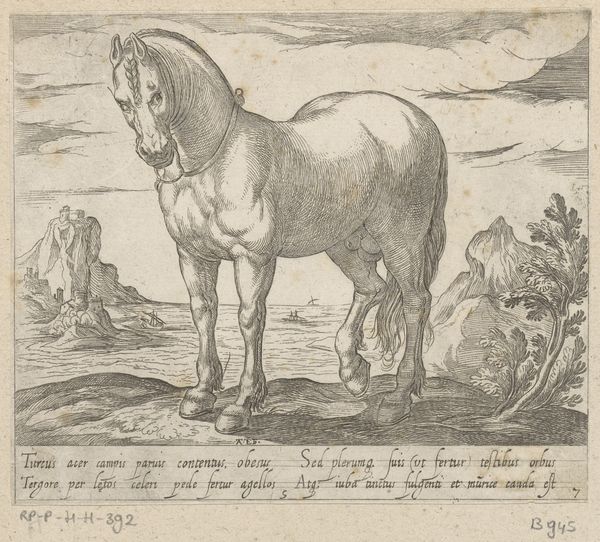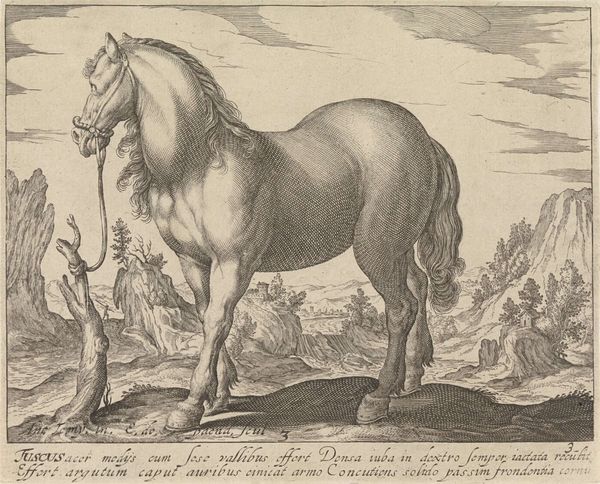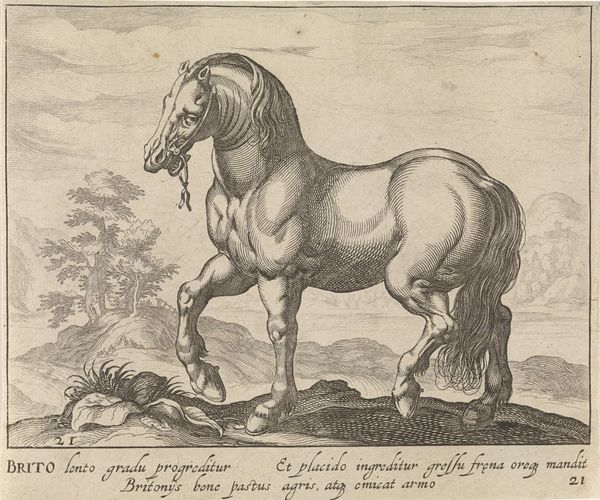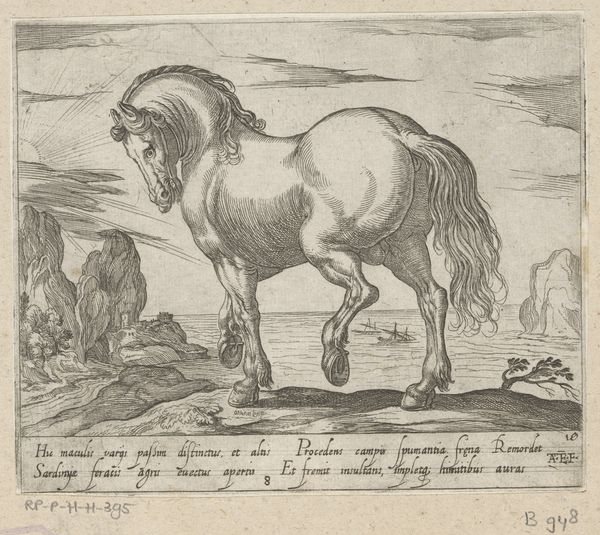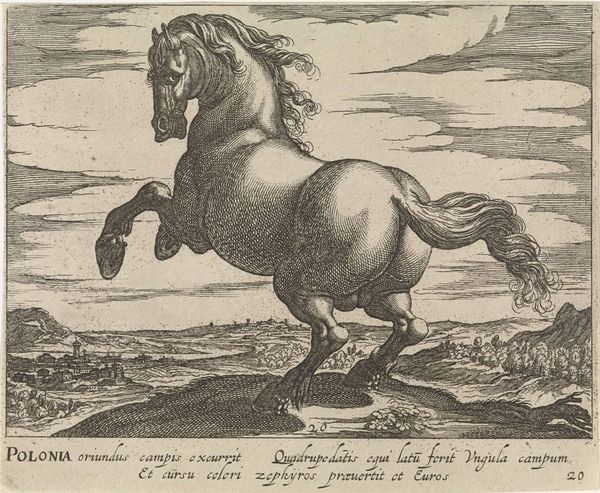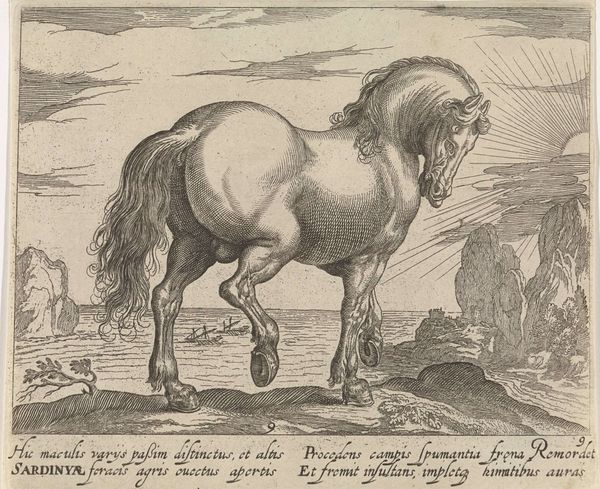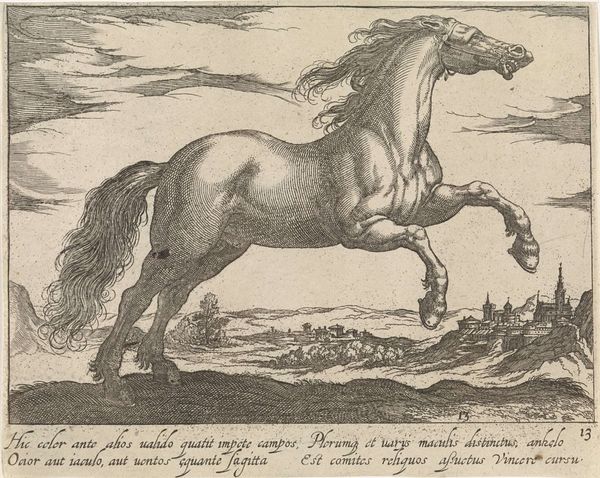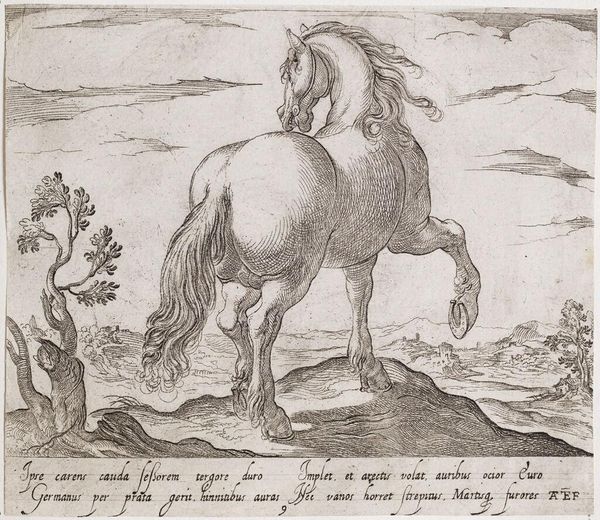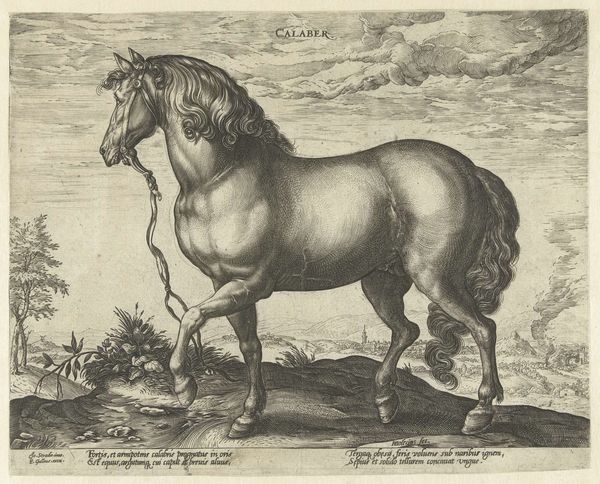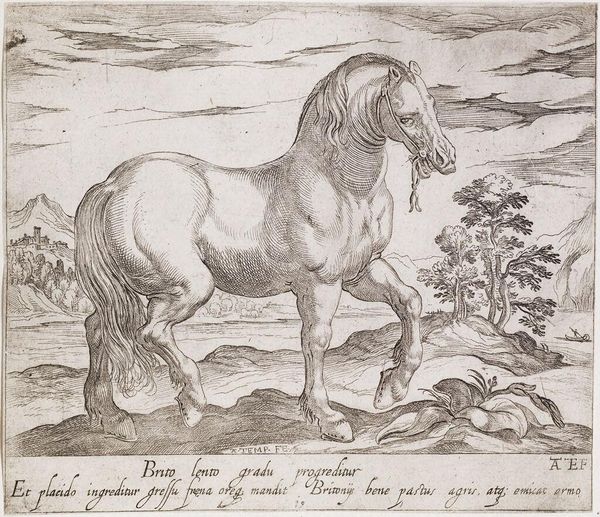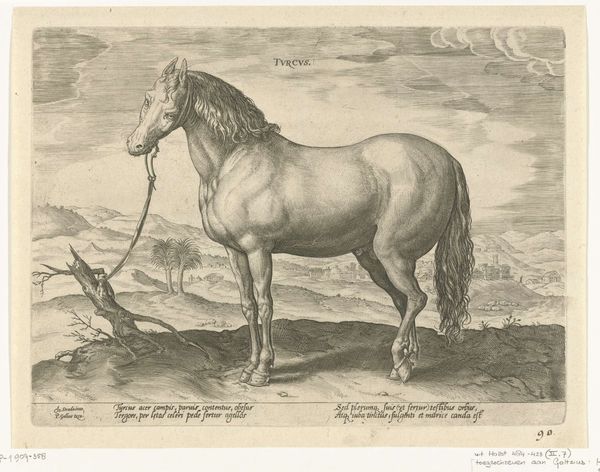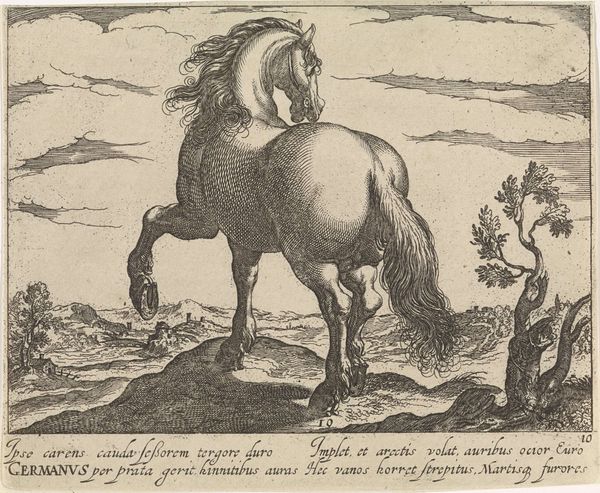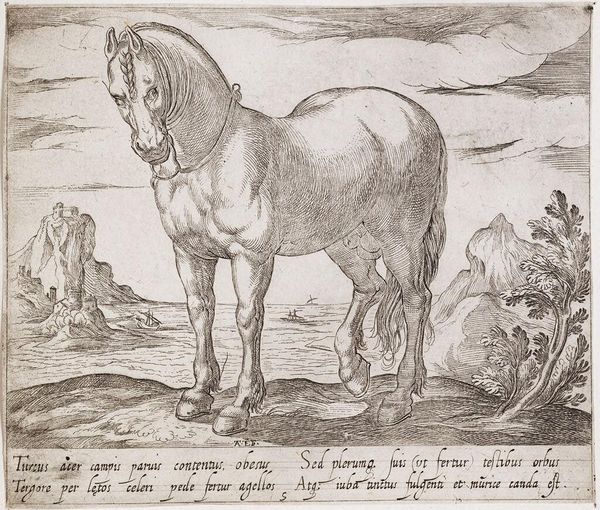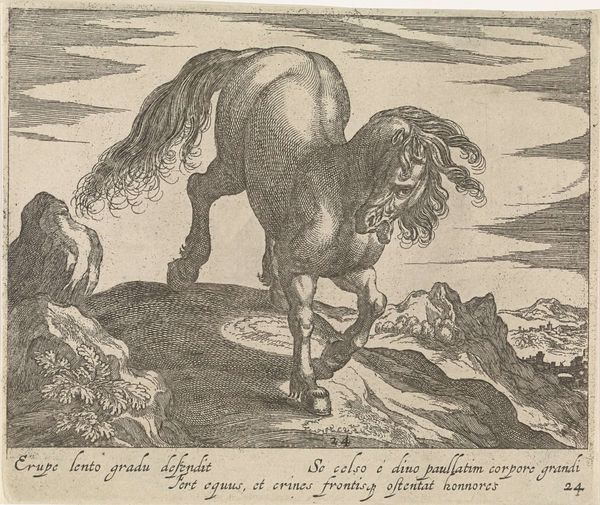
print, engraving
#
animal
# print
#
landscape
#
figuration
#
horse
#
engraving
#
realism
Dimensions: height 138 mm, width 165 mm
Copyright: Rijks Museum: Open Domain
Egbert van Panderen created this etching of "Landscape with Horse from Turkey" sometime between 1590 and 1637. It's an intriguing depiction, offering insights into early modern European perceptions of the Ottoman Empire. The image creates meaning through a series of visual codes, cultural references, and historical associations. Made in the Netherlands, the work reflects the growing interest in and trade with the East during this period. Note the artist's careful attention to the horse's musculature and exotic origins, set against an imagined landscape. This reflects the period's fascination with the "Orient," even if filtered through a Western lens. Was it meant to celebrate or critique the increasing interconnectedness of the world? To fully understand this artwork, we can consider the historical context, the artist's biography, and the Dutch Republic’s relationship with the Ottoman Empire. These research avenues help us understand the complex dynamics of cultural exchange and representation in the early modern world.
Comments
No comments
Be the first to comment and join the conversation on the ultimate creative platform.
